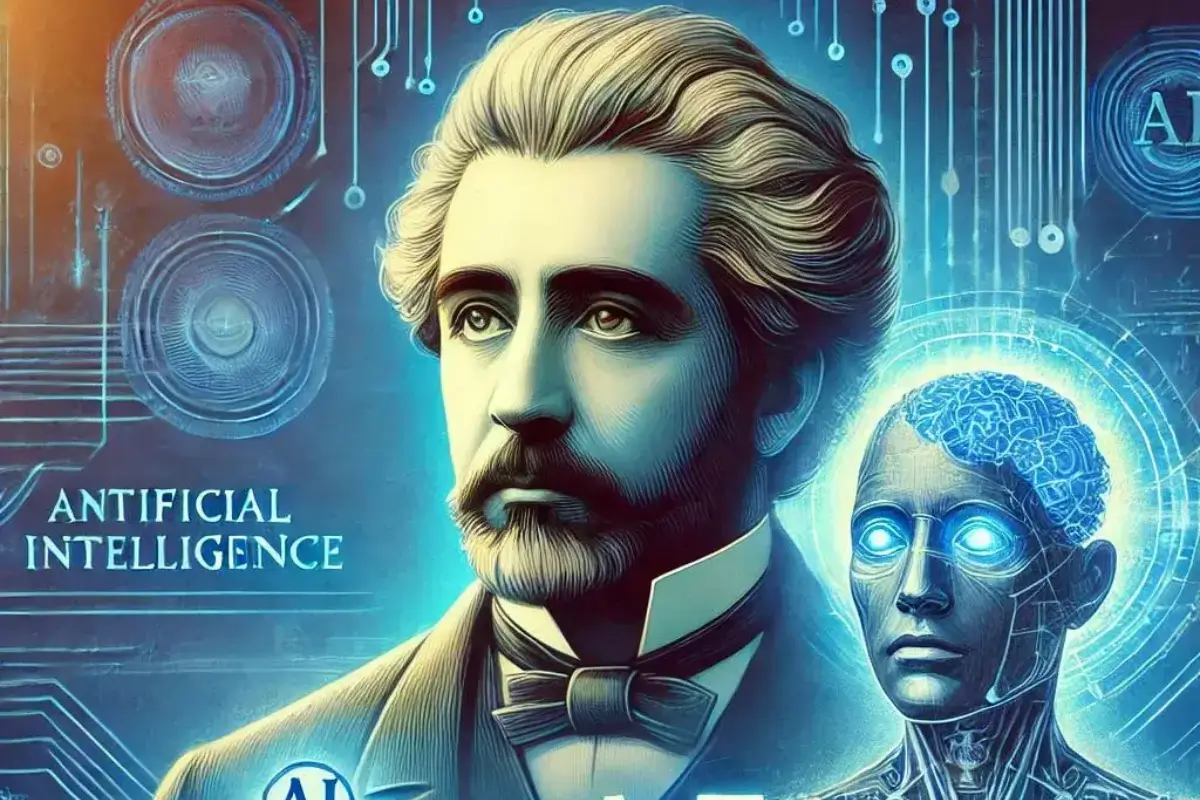Artificial intelligence (AI) is at the heart of today’s technological revolution, powering everything from virtual assistants to autonomous vehicles.
But have you ever wondered where it all began?
The concept of AI, once a distant dream, is now a reality shaping our daily lives.
Behind this transformative field stands a visionary who laid its foundation.
Known as the “father of AI,” this pioneer revolutionized how we think about machines and intelligence.
Let’s explore the origins of AI and uncover the story of John McCarthy, the man credited with turning science fiction into science fact.
Who Is the Father of AI? A Historical Perspective
John McCarthy, a brilliant computer scientist, is widely recognized as the “father of AI.”
In 1956, he coined the term “artificial intelligence” while organizing a groundbreaking conference that would change the course of history.
McCarthy’s vision was bold: he believed machines could be programmed to perform tasks that required human intelligence, such as learning and problem-solving.
His contributions didn’t stop at defining the field. McCarthy created Lisp, a programming language specifically designed for AI research.
This innovation provided the tools necessary for developing early AI systems and remains influential in modern AI applications.
By spearheading AI’s development, McCarthy set the stage for the technological advancements we enjoy today.
The Dartmouth Conference: Birthplace of Artificial Intelligence
The 1956 Dartmouth Conference, organized by John McCarthy and his colleagues, marked the formal beginning of artificial intelligence as an academic field.
Often referred to as the birthplace of AI, this historic meeting brought together brilliant minds to discuss the potential of intelligent machines.
McCarthy’s proposal for the conference was revolutionary: he envisioned a world where machines could simulate human reasoning.
During the event, foundational ideas such as machine learning, neural networks, and automated reasoning were discussed.
The Dartmouth Conference not only legitimized AI as a discipline but also inspired decades of research and innovation.
Read also: How does artificial intelligence impact our daily lives?
John McCarthy’s Legacy: Shaping AI’s Future
John McCarthy’s contributions to artificial intelligence extended far beyond the Dartmouth Conference.
His work on time-sharing systems revolutionized computer accessibility, allowing multiple users to interact with a computer simultaneously.
This innovation was crucial for the development of AI, as it provided researchers with the computational power needed to test their ideas.
Additionally, McCarthy’s creation of Lisp became a cornerstone for AI programming.
This language enabled the development of systems capable of natural language processing, problem-solving, and even early forms of machine learning.
McCarthy’s influence is evident in today’s AI technologies, from virtual assistants like Siri and Alexa to advanced robotics.
His vision laid the groundwork for a world where AI enhances our lives in countless ways.
Did Anyone Else Influence the Development of AI?
While John McCarthy is celebrated as the father of AI, other pioneers played vital roles in shaping the field.
Alan Turing, often referred to as the “father of computer science,” introduced the Turing Test, a benchmark for evaluating a machine’s ability to exhibit human-like intelligence.
Turing’s theoretical work laid the foundation for many AI concepts.
Marvin Minsky, a collaborator of McCarthy, contributed significantly to early AI research.
Together, they worked on projects that explored machine learning and reasoning.
Additionally, Norbert Wiener’s work on cybernetics influenced the development of intelligent systems capable of adapting to their environments.
These trailblazers complemented McCarthy’s vision, proving that AI’s evolution was a collaborative effort driven by brilliant minds.
Modern AI: A Tribute to Its Founders
Today’s AI technologies owe much to the foundational work of John McCarthy and his contemporaries.
Concepts like neural networks, which power applications from facial recognition to autonomous driving, trace their origins to ideas discussed at the Dartmouth Conference.
McCarthy’s dream of machines capable of reasoning and learning has become a reality.
AI now drives industries, improves healthcare, and even enhances entertainment.
Innovations like ChatGPT and other natural language models showcase how far the field has come, rooted in the pioneering work of AI’s early architects.
Why Understanding AI’s Origins Matters
Understanding the origins of artificial intelligence helps us appreciate the vision and effort required to transform a revolutionary idea into reality.
By learning about AI’s history, we gain insight into its potential and its ethical implications.
As AI continues to evolve, reflecting on its roots reminds us of the importance of responsible innovation.
Exploring the contributions of figures like John McCarthy inspires us to push the boundaries of what’s possible while honoring the principles that guide technological advancement.
Conclusion: Honoring the Father of AI
John McCarthy’s contributions to artificial intelligence have left an indelible mark on the world.
From coining the term “artificial intelligence” to developing groundbreaking technologies, his work laid the foundation for a field that continues to shape our future.
As we marvel at today’s AI innovations, it’s essential to remember the pioneers who made it all possible.
For more insights into tech history and the future of AI, explore our curated articles on Nerd Without Borders.
Don’t forget to follow us on social media for the latest updates and discussions!
Read also: How does artificial intelligence impact our daily lives?
Follow our social media to receive content as soon as it is released.👇

